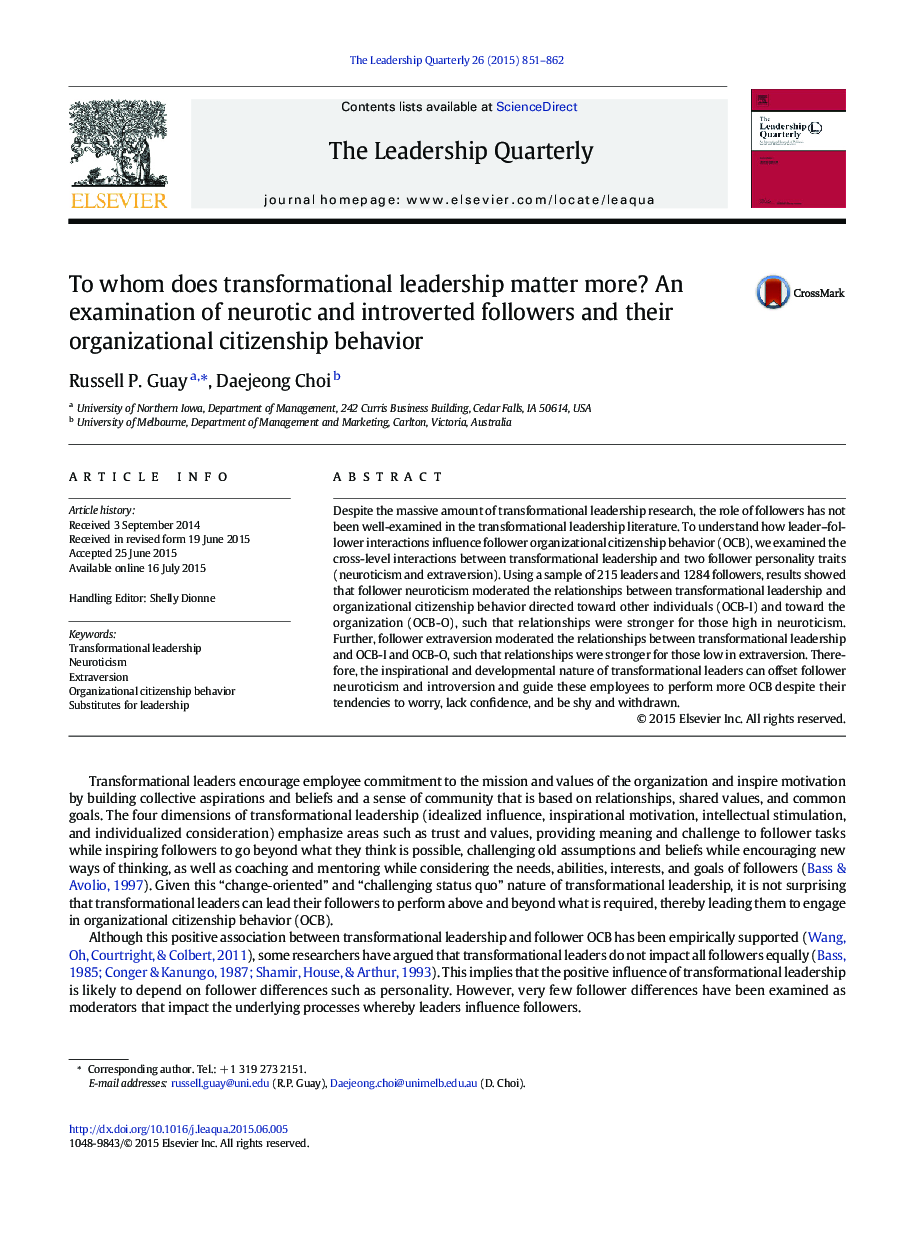| Article ID | Journal | Published Year | Pages | File Type |
|---|---|---|---|---|
| 887790 | The Leadership Quarterly | 2015 | 12 Pages |
Despite the massive amount of transformational leadership research, the role of followers has not been well-examined in the transformational leadership literature. To understand how leader–follower interactions influence follower organizational citizenship behavior (OCB), we examined the cross-level interactions between transformational leadership and two follower personality traits (neuroticism and extraversion). Using a sample of 215 leaders and 1284 followers, results showed that follower neuroticism moderated the relationships between transformational leadership and organizational citizenship behavior directed toward other individuals (OCB-I) and toward the organization (OCB-O), such that relationships were stronger for those high in neuroticism. Further, follower extraversion moderated the relationships between transformational leadership and OCB-I and OCB-O, such that relationships were stronger for those low in extraversion. Therefore, the inspirational and developmental nature of transformational leaders can offset follower neuroticism and introversion and guide these employees to perform more OCB despite their tendencies to worry, lack confidence, and be shy and withdrawn.
